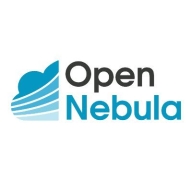

VMware Aria Operations and OpenNebula compete in the cloud management category. Based on the data, VMware Aria Operations has the upper hand due to its advanced analytics and predictive insights specifically tailored for VMware environments.
Features: VMware Aria Operations is distinguished by real-time analytics, integration with vCenter/ESXI, and dynamic thresholds, which provide predictive insights into VMware environments. It offers capacity management and proactivity through detailed metrics for issue prevention. OpenNebula, meanwhile, is noted for its flexibility and adaptability across various platforms while being less specialized in VMware contexts.
Room for Improvement: VMware Aria Operations could enhance user engagement by simplifying its reporting features and improving the user interface for beginners. Additionally, expanding integration capabilities with third-party tools would extend its applicability beyond VMware. OpenNebula needs to improve its documentation and customer support for clearer communication. Of note, the platform would benefit from more robust community backing and quicker feature updates.
Ease of Deployment and Customer Service: VMware Aria Operations supports on-premises, hybrid, and private cloud deployments, with a recognized strong technical support network. However, reaching advanced support levels could be improved. OpenNebula is favored for its straightforward setup for on-premises and public cloud deployments, but it requires clearer communication channels and faster customer support response times.
Pricing and ROI: VMware Aria Operations is on the higher end of the pricing spectrum, making it more appealing to larger enterprises with specific VMware needs, substantiated by a significant ROI in environments heavily utilizing VMware. OpenNebula offers a cost-effective open-source alternative with lower upfront and operational costs, making it desirable for budget-conscious scenarios, albeit with some limitations in advanced features compared to VMware Aria Operations.
| Product | Market Share (%) |
|---|---|
| VMware Aria Operations | 6.7% |
| OpenNebula | 5.7% |
| Other | 87.6% |


| Company Size | Count |
|---|---|
| Small Business | 7 |
| Midsize Enterprise | 6 |
| Large Enterprise | 3 |
| Company Size | Count |
|---|---|
| Small Business | 62 |
| Midsize Enterprise | 62 |
| Large Enterprise | 278 |
OpenNebula provides the most simple but feature-rich and flexible solution for the comprehensive management of virtualized data centers to enable private, public and hybrid IaaS clouds. OpenNebula interoperability makes cloud an evolution by leveraging existing IT assets, protecting your investments, and avoiding vendor lock-in.
OpenNebula is a turnkey enterprise-ready solution that includes all the features needed to provide an on-premises (private) cloud offering, and to offer public cloud services.
VMware Aria Operations is a high-ranking virtualization management and cloud management tool that automates and simplifies IT management to the applications it supports. It achieves this through full-stack visibility from physical, virtual, and cloud infrastructure. The product allows users to enable self-driving IT operations management across private, hybrid, and multi-cloud environments. This is conducted with the unified operations platform that delivers continuous performance, capacity and cost optimization, and integrated compliance through artificial intelligence (AI) and machine learning (ML), and predictive analytics.
VMware Aria Operations Use Cases
VMware Aria Operations has several use cases, some of which include:
VMware Aria Operations Features
The product has various features which users can utilize. Several of the features that the 2022 version of VMware Aria Operations introduced include:
VMware Aria Operations Benefits
VMware Aria Operations brings various benefits to the organizations using it. Among them are the following:
Reviews from Real Users
Mohamed N., a tech lead VMware support engineer at a tech services company, appreciates VMware Aria Operations because it is easy to use, stable, and support is always available.
Mojtaba K., a senior system administrator at a comms service provider, values VMware Aria Operations due to the fact that its dashboards give you a glimpse of what is really going on in your virtualized environment.
We monitor all Cloud Management reviews to prevent fraudulent reviews and keep review quality high. We do not post reviews by company employees or direct competitors. We validate each review for authenticity via cross-reference with LinkedIn, and personal follow-up with the reviewer when necessary.